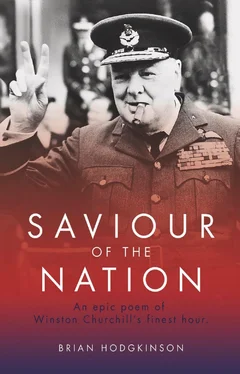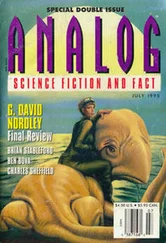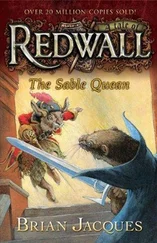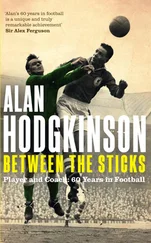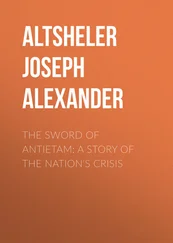Before the votes were cast the Reichstag fire
Had burnt to ashes hopes of real reform.
The stormtroop legions cast aside restraint.
When Goring sanctioned police atrocities,
The Communists were murdered, or were held
Without due trial, regardless of the law.
A presidential edict had destroyed
All guarantees of personal liberty;
The new Republic, handicapped from birth
By enemies of freedom – Freikorps bands
And revolutionaries of left and right –
Was strangled by the senile Hindenburg.
At Potsdam, where the Prussian kings had sat,
Old memories of the Kaiserreich were stirred
When Hitler bowed before the head of State,
And wreaths were laid on tombs of monarchy.
But two days later all pretence was gone.
The Reichstag met in Berlin’s Opera House
To grant to Hitler unrestricted power.
Before the doors the Sturmabteilung stood,
Jackbooted brownshirts, eyeing delegates.
Inside, their comrades ringed the chamber walls.
Despite such terror, Otto Wells spoke out,
A final voice of liberal Germany,
Against the certain passage of the Bill
That gave to Hitler overwhelming powers.
Wells could not win. Too many absentees,
Deprived of rights, were held in custody.
This overture to German tragedy
Now set the scene for crude dictatorship.
The State would be the instrument of men
Obsessed by hate and racial fantasies.
The road to war was opened to the tread
Of German armies soon revitalised.
To Adolf Hitler war had been a dream,
Which offered him a kind of comradeship
In risk and violence, bravery and will.
When, as a youth, he’d seen so many Jews
Within his Austrian homeland, when he’d read
Hypotheses of racial purity,
And heard condemned the role of German Jews
In business, banking, law and medicine,
His mind was warped by unremitting rage:
Marxism was the Jew’s conspiracy,
Now thriving in that Slavic hinterland
Where Germany demanded Lebensraum .
The Nordic race must claim its destiny
And rid itself of all but German stock.
By war a race survives, by right of strength.
Destroy the rule of parties and of laws
That do not bear the German people’s will.
Ein Reich, ein Volk, ein Führer ; thus it was.
2
The Prophet Unheeded
Summer 1932
Winston Churchill, of the famous line
Descended from the Duke of Marlborough,
Had stayed in Munich, just before the rise
Of Adolf Hitler to dictatorship.
In that same city, which not long before,
Had seen the police shoot down a Nazi band,
Who’d planned to seize the reins of government,
A meeting was arranged. For Churchill then
Had little knowledge of this violent man,
Who was to be his chief protagonist.
Against Herr Hitler, at this time, he said,
He had no national prejudice, nor knew
What views he held, what type of man he was;
He had the right to be a patriot,
To stand up for his country in defeat.
But Hitler learned that Churchill had enquired
About the Jews. Why did he hate them so?
No more advances came from either side.
The arch-opponents of the future war
Would never see each other face to face.
Though he had held high offices of State,
Now Winston Churchill sat in Parliament
Below the aisle, a lonely figure, shunned,
A critic of his party’s policies.
Rotund and short, and stooping from a blow
Received in playing polo in his youth,
He yet retained a charismatic power.
His smooth and pinkish face, with glaucous eyes,
Set ’neath a lofty brow and balding head,
Could be expressive when he was aroused.
But often now he looked more in repose,
In brooding thought on matters secretive,
As one – for those who knew him – like a fire,
Damped down, but waiting, incubated, dulled,
Yet burning still with concentrated heat.
Most doubted now his judgment, since that time
When, in the former war, he’d pressed the case
For Allied action in the Dardanelles.
How much he’d suffered from that cruel debacle,
Fought out on shores of far Gallipoli!
Without full power, yet ardent to pursue
A plan to end the slaughter in the west,
He’d watched its failure, grieved at its mistakes,
And mourned for those who’d perished there in vain.
He listened now to lesser men’s debates.
Prime Minister MacDonald was not loth
To press upon the European powers
The need to hasten their disarmament.
Widespread opinion favoured such a course.
Had not the war been caused by armaments?
The losers had been stripped of all their power,
But, of the victors, France especially,
Retained its forces in preponderance.
Should not the French and others acquiesce
By cutting down their arms to parity?
The British government did not make a stand
Against this plea from vanquished enemies.
Indeed they showed displeasure at the French
For clinging to their own security.
For Britain had not witnessed German troops
Trample the growing corn of native land,
And seen their ancient villages subdued
By field-grey soldiers, alien in tongue.
Yet France would keep her army, though some knew,
Like Charles de Gaulle, it was not competent.
Amidst these cries of fear and sentiment,
One voice in England spoke of principles:
‘Whilst grievances of vanquished States remain,
It is not safe for victors to disarm.’
Churchill did not ignore the Germans’ case
For some amendment of the harshest terms
Imposed by post-war treaty at Versailles:
Their loss of land, their weakness in defence
In view of Russia’s greater armaments,
Their economic burdens, and the guilt
Which they regarded as unjustly borne.
And yet to see them arming for revenge
Was to invite a new catastrophe.
It was not long ago that he himself
Had argued for the British to reduce
Expenditure on arms. As Chancellor,
He’d forced the British Admiralty to cut
Its spending on new cruisers; then refused
To finance a new base at Singapore.
And later he’d advised the Cabinet
To keep the rule that war was not foreseen
For ten years in the future. Now he knew
How circumstances differed; how once more
The world was threatened with the bane of war.
So Churchill braved the judgment of his peers;
‘Thank God’, he cried, ‘that France has not disarmed.’
Though even he did not expect the war
That Germans, like von Seekt, had now conceived:
A war of movement, blitzkrieg, planes and tanks.
Instead he feared the flames in city streets,
The hail of bombs on helpless citizens.
For he well knew the face of war had changed.
As First Lord of the Admiralty, he’d known
How every ship was armed; how they must match
The German Dreadnoughts and the submarines
Within the North Sea and the ocean deeps.
One admiral then, he’d said, could lose the war;
In one engagement all could be at risk.
But aircraft had transformed the art of war.
Britain, especially, was most vulnerable,
With massive cities, ports and industries
And London within minutes of the coast.
He was appalled to hear the government say
That no new squadrons were to be equipped;
That Britain’s air force was the fifth air power.
What scorn he poured on Baldwin’s later claim
That he’d not called for due rearmament,
Читать дальше
